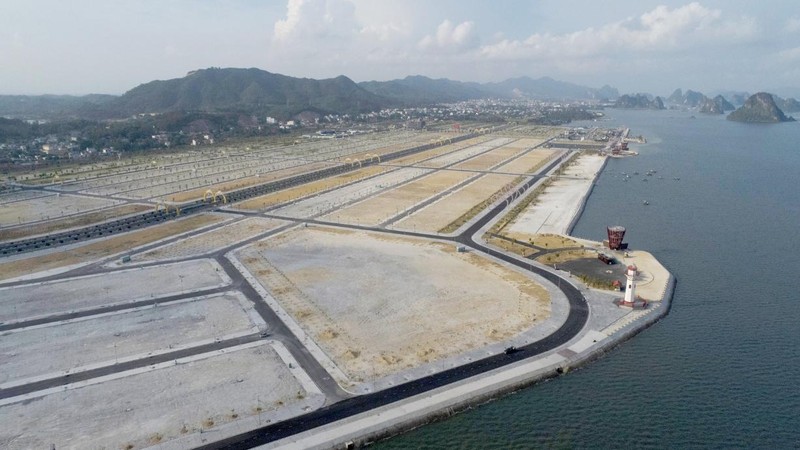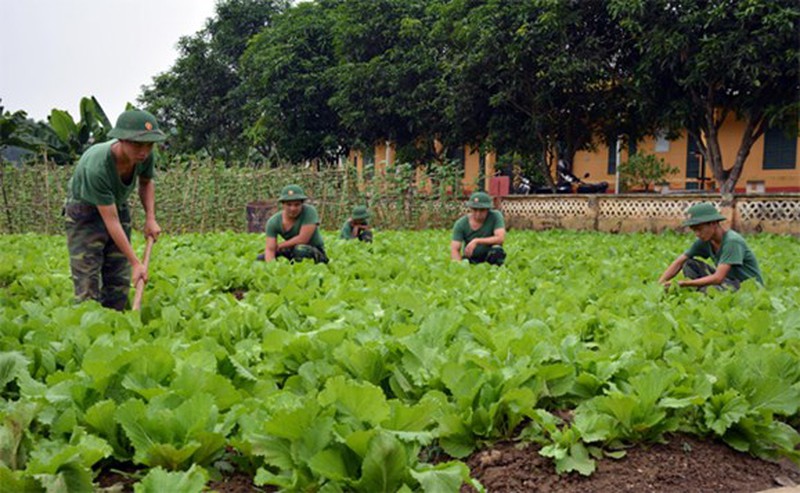Guidance on determining land levy and land rent for reclaimed land in Vietnam
The method of determining land levy and land rent for reclaimed land in Vietnam from August 1, 2024, is guided in Decree 102/2024/ND-CP.

Guidance on determining land levy and land rent for reclaimed land in Vietnam (Image from Internet)
Guidance on determining land levy and land rent for reclaimed land in Vietnam
Land reclamation refers to the expansion of land area from the lowest mean sea level over many years towards the sea within the territorial waters of Vietnam. According to Article 75 of Decree 102/2024/ND-CP, the determination of specific land prices to calculate the land levy and land rent for land reclamation is carried out according to the provisions of the land law as stipulated in Decree 103/2024/ND-CP.
(1) In cases where the residual method is applied to determine specific land prices, the total development cost estimate must include the land reclamation costs approved by competent state authorities as regulated in Article 72 of Decree 102/2024/ND-CP; if the total development costs exceed the total development revenue, the difference is accounted for in the cost of the land reclamation investment project or an investment project with a land reclamation component.
(2) Within 180 days from the completion of land reclamation, the project investor must file for the settlement of land reclamation costs with the specialized construction agency under the provincial People's Committee for appraisal.
Within 90 days from the receipt of complete settlement documentation from the project investor, the specialized construction agency under the provincial People's Committee appraises the reclamation costs and submits them to the provincial People's Committee for approval.
(3) Handling the difference between the settled land reclamation costs and the costs included in the total development expenses when determining specific land prices, for cases applying the residual method (hereinafter referred to as the difference), is carried out as follows:
- If the settled land reclamation costs are less than the costs included in the total development expenses, the investor must pay the difference;
- If the settled land reclamation costs are more than the costs included in the total development expenses, the difference is accounted for in the cost of the land reclamation investment project or an investment project with a land reclamation component.
(4) In cases of land allocation or rental for land reclamation investment projects or projects with a land reclamation component through the auction of land use rights, the provisions of section (2) and (3) do not apply.
Principles of land reclamation in Vietnam
The state encourages organizations and individuals to use funds, technology, and techniques to carry out land reclamation activities; and provides support and incentives to investors performing land reclamation activities as per legal regulations. According to Clause 2, Article 190 of the Land Law 2024, land reclamation in Vietnam must comply with the following principles:
- Ensure national defense, security, sovereignty, sovereign rights, jurisdiction, and national interests at sea; in accordance with other related laws and international treaties to which the Socialist Republic of Vietnam is a member;
- Based on full evaluation of economic, social, environmental factors, ensuring sustainable development, biodiversity, natural factors, impact of natural disasters, climate change, and sea-level rise;
- Compliant with provincial plans, district-level land use plans, construction plans, or urban plans;
- Efficiently exploit and utilize marine resources; harmonize interests of parties involved in land reclamation and other related parties; ensure public and community access to the sea;
- land reclamation activities must be formulated as investment projects or components of investment projects in accordance with the law in Vietnam.
- Key word:
- reclaimed land
- land
- in Vietnam
- Vietnam
- What Services Are Included in Social Work Services?
- The Government of Vietnam Comments on the Draft Law on Management and Investment of State Capital in Enterprises (Amended)
- From October 15, 2024, the Practice of Social Work for Profit is Strictly Prohibited
- Requirements for the Exploration of Marine Sand Resource from October 15, 2024
- Guidance on Numbering Apartment Units in Condominium Buildings from October 15, 2024
- Case where land user is not required to pay annual land levy on land for national defense or security purpose in combination with productive labour in Vietnam
-

- Case where land user is not required to pay annual ...
- 11:30, 06/09/2024
-

- Newest regulations on procedures for transfer ...
- 10:30, 06/09/2024
-

- Cases of revoking license to operate, terminating ...
- 10:00, 06/09/2024
-

- Newest regulations on the date of establishing ...
- 09:30, 06/09/2024
-

- New regulations on the recognition of the right ...
- 09:03, 06/09/2024
-

- What Services Are Included in Social Work Services ...
- 16:59, 06/09/2024
-

- The Government of Vietnam Comments on the Draft ...
- 16:46, 06/09/2024
-

- Tasks and Key Solutions for the 2024 - 2025 Academic ...
- 16:23, 06/09/2024
-

- From October 15, 2024, the Practice of Social ...
- 16:00, 06/09/2024
-

- Requirements for the Research on the Quality of ...
- 15:52, 06/09/2024

 Article table of contents
Article table of contents
